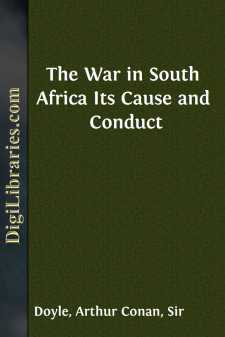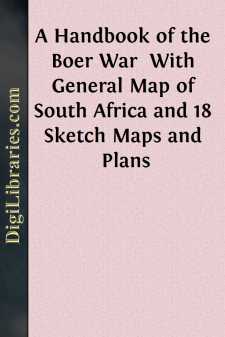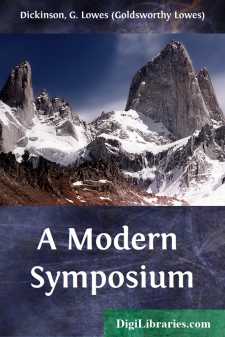History
- Africa 30
- Americas (North Central South West Indies) 50
- Ancient 68
- Asia 58
- Australia & New Zealand 8
- Canada 41
- Caribbean & West Indies 1
- Civilization 20
- Eastern Europe 12
- Europe 310
- Expeditions & Discoveries 60
- General 77
- Historical Geography 1
- Jewish 9
- Latin America 3
- Medieval 8
- Middle East 13
- Military 248
- Revolutionary 8
- Study & Teaching 5
- United States 353
- Western Europe 56
- World 13
History Books
Sort by:
It is impossible to appreciate the South African problem and the causes which have led up to the present war between the British Empire and the Boer republics without some knowledge, however superficial, of the past history of South Africa. To tell the tale one must go back to the beginning, for there has been complete continuity of history in South Africa, and every stage has depended upon that which...
more...
Charles Francis Adams, Esq.,Boston, Massachusetts. Dear Sir: I have been handed a pamphlet written by you entitled "The Confederacy and the Transvaal," the burden of which is, that the Boers ought not to continue their irregular guerilla struggle against England, because it is destructive of themselves and wasteful of England's resources; or to use your own words "the contest drags...
more...
MAPS TO VOLUME I. Pains have been taken to embody in the maps all topographical information existing up to date. A very considerable amount of valuable triangulation has been executed over portions of South Africa, but no systematic detailed survey has ever been made by any of the South African colonies or states. Maps have, however, been compiled by both Cape Colony and Natal. The former has prepared...
more...
by:
Unknown
I. THE ROUNDHEADS OF SOUTH AFRICA History often reproduces without reference to nationality some particular human type or class which becomes active and predominant for a time, and fades away when its task is finished. It is, however, not utterly lost, for the germ of it lies dormant yet ready to re-appear when the exigencies of the moment recall it. The reserve forces of human nature are inexhaustible...
more...
CHAPTER I FIRST VOYAGE TO SOUTH AFRICA—CAPE TOWN. "Oh that mine adversary had written a book!"—JOB xxxi. 35. The above words, written by one of the greatest philosophers of olden time, have often impressed me, and I have frequently quoted them when asked why I did not write an account of the interesting travels and adventures I have had in my life. It has therefore required a great deal of...
more...
PREFATORY CHAPTER This new edition has been carefully revised throughout, and, as far as possible, brought up to date by noting, in their proper places, the chief events of importance that have occurred since the book first appeared. In the historical chapters, however, and in those which deal with recent politics, no changes have been made save such as were needed for the correction of one or two...
more...
Mr. Theodore Irving, in his valuable history of the "Conquest of Florida," speaking of the astonishing achievements of the Spanish Cavaliers, in the dawn of the sixteenth century says: "Of all the enterprises undertaken in this spirit of daring adventure, none has surpassed, for hardihood and variety of incident, that of the renowned Hernando de Soto, and his band of cavaliers. It was...
more...
by:
Walther Rathenau
THE NEW SOCIETY Is there any sign or criterion by which we can tell that a human society has been completely socialized? There is one and one only: it is when no one can have an income without working for it. That is the sign of Socialism; but it is not the goal. In itself it is not decisive. If every one had enough to live on, it would not matter for what he received money or goods, or even whether he...
more...
A MODERN SYMPOSIUM OME of my readers may have heard of a club known as the Seekers. It is now extinct; but in its day it was famous, and included a number of men prominent in politics or in the professions. We used to meet once a fortnight on the Saturday night, in London during the winter, but in the summer usually at the country house of one or other of the members, where we would spend the...
more...
by:
Thomas Carlyle
INTRODUCTION Being an appreciation from "The Dial" (July 1843) by Ralph Waldo Emerson Here is Carlyle's new poem, his Iliad of English woes, to follow his poem on France, entitled the History of the French Revolution. In its first aspect it is a political tract, and since Burke, since Milton, we have had nothing to compare with it. It grapples honestly with the...
more...











